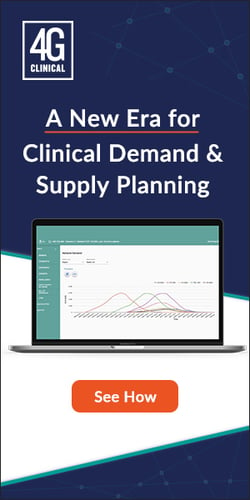Spoiler alert. Clinical Supply Planners (CSPs) shouldn’t require a PhD in math, but practically it may feel like they need it. CSPs are expected to define how much inventory needs to be held at the site level, at depot level and at the central storage level, accounting for countless study design and supply variables. The added challenge is that demand is extremely unpredictable, trial designs are constantly evolving and supply chains are responding slowly.
One of the current solutions is to build supply chain models within existing commercial tools vs. using manual spreadsheets. These existing web-based systems are extremely complex and most CSPs have difficulty verifying the outcomes based on the inputs. Without the knowledge base to decode statistical algorithms running the tool, CSPs often find themselves blindly accepting results without visibility into why the calculations are what they are.
To make matters more complicated, CSPs traditionally rely on expensive consultants to interpret the results, make additional changes to the models and are unable to deliver fast answers to their clinical counterparts on how design changes may impact supply. No wonder CSPs may feel they need a PhD in math to be effective in their job.
We believe there is a better way. Here is a brief synopsis of why change is needed in clinical supply planning:
1. CSPs are typically not experts in statistical algorithms, nor should they be. They shouldn’t be forced to blindly accept forecasting plans from a tool they don’t understand.
2. There should be transparency into inputs and direct correlation to its outputs. Actuals should be compared to forecast and used in future planning exercises.
3. CSPs should be able to modify the model as frequently as needed without effort.
4. Decisions should be based on business need rather than relying on complex calculations.
What can be done now? Operationally, CSPs should be empowered with a good level of understanding what variables or information is critical to model supply planning (feasibility planning to study planning) so they can react and make decisions more effectively.
From a technology perspective, modern technology and Natural Language Processing (NLP) has enabled those variables to be interpreted and configured into the models. That way, the CSP no longer needs to be a statistical expert to inform supply decisions.
Let’s give control back to the CSPs and empower them to do their jobs for effectively. We’d love to connect and show you how.

